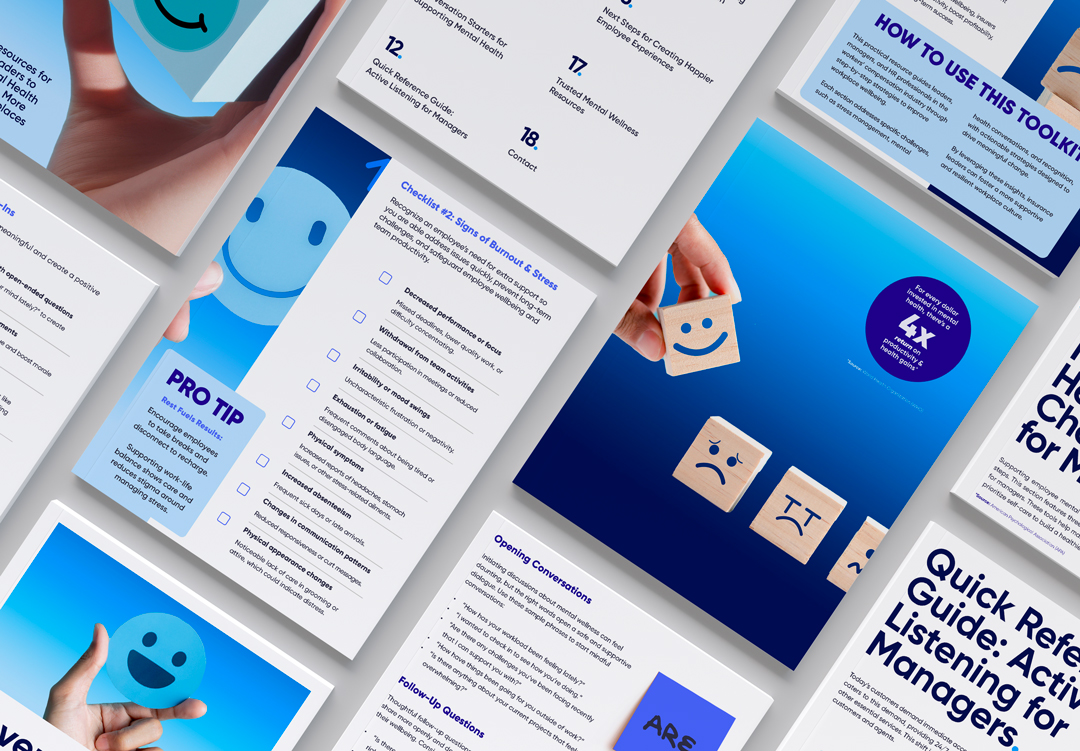Employee wellbeing extends far beyond offering standard benefits packages. At its core, workplace wellbeing creates an environment where employees feel heard, valued, and safe to contribute. When team members can freely share ideas, acknowledge mistakes, and collaborate without fear, they consistently perform at their best.
The recently released 2025 Psychological Safety Study conducted by Workplace Options (WPO) and the International Institute of Risk & Safety Management (IIRSM) reveals concerning trends in workplace stress, conflict, and wellbeing initiatives worldwide. Although 88% of organizations claim employee wellbeing is a priority, many struggle to transform these good intentions into meaningful impact.
At True, we have carefully tracked evolving trends in the insurance workforce driven by changing generational work-life preferences. You don’t have to be a keen observer to notice that psychological safety has become a not only a hot topic but is also now a critical element of operational efficiency, talent retention, and innovation in the workers’ compensation industry. Below are the key insights insurance leaders need to know from this study to build a workforce that truly thrives.
1. Psychological Safety Boosts Performance and Profitability
The study findings are unequivocal: 93% of respondents agree psychological safety enhances productivity, innovation, and profitability. Furthermore, one-third of participants estimate an ROI exceeding 20% from workplaces that genuinely value psychological safety.
Why It Matters for Insurance Leaders:
- Engaged employees process claims faster and more accurately, resulting in better customer outcomes.
- Safety-focused cultures naturally encourage collaboration, making compliance and risk assessments more efficient.
- Insurance companies that invest in employee wellbeing experience lower turnover rates and reduced hiring costs.
Take Action:
Invest in technology that automates repetitive tasks so employees can focus on high-value work. Our comprehensive report on the ROI of Employee Wellbeing explores how TruePolicy™ and TrueClaims™ help insurance teams eliminate administrative burdens through automation, allowing employees to focus on high-value work that contributes to a psychologically safe environment.
2. Many Wellbeing Programs Lack Real Impact
While most companies have implemented workplace wellbeing strategies, only 29% describe their programs as “very comprehensive.” Concerningly, another 24% believe their programs are ineffective.
Why It Matters for Insurance Leaders:
- Employees quickly disengage when wellbeing programs fail to address actual workplace stressors.
- Without psychological safety, employees tend to make fear-based decisions, significantly increasing risk exposure.
- Inadequate communication about wellbeing initiatives leaves employees feeling unsupported, negatively affecting morale and performance.
Take Action:
Implement employee feedback tools to measure program effectiveness accurately. For additional guidance, our Workers’ Comp Insurers’ Guide to Building a Supportive Team Environment outlines proven, data-driven strategies to enhance workplace wellness.
3. Leadership Sets the Tone for Psychological Safety
Leadership engagement remains critical for success, yet many companies struggle to integrate psychological safety into daily operations. While 57% of organizations report that executives share responsibility for wellbeing, this commitment often manifests as talk rather than meaningful action.
Empower Your Workforce.

Why It Matters for Insurance Leaders:
- Effective risk management fundamentally depends on open reporting systems. When employees fear backlash, critical risks remain hidden.
- Transparent leaders who actively listen and support employees build trust throughout teams.
- Psychologically safe workplaces naturally foster smarter decision-making, helping insurers maintain competitive advantage.
Take Action:
Provide comprehensive training for leadership teams on psychological safety principles, particularly focusing on giving and receiving effective feedback and developing active listening skills.
4. Mental Health Support Is No Longer Optional
The study clearly demonstrates that 80% of organizations prioritizing psychological safety offer mental health resources. However, many still lack a structured, comprehensive approach.
Why It Matters for Insurance Leaders:
- Claims management roles often involve emotionally demanding work, frequently leading to burnout.
- Employees handling sensitive injury claims require adequate support to avoid emotional exhaustion.
- Teams that feel psychologically safe manage stress more effectively, reducing absenteeism and improving customer interactions.
Take Action:
Implement wellbeing technology that seamlessly integrates with existing HR systems, making mental health resources easily accessible to all employees. For additional resources, the CDC offers a comprehensive list of best practices, tools, and guidance for building truly supportive work environments.
5. Companies Are Not Prioritizing Psychological Safety Training
Despite clear benefits for risk reduction and improved decision-making, only 44% of organizations provide psychological safety training.
Why It Matters for Insurance Leaders:
- Without proper training, employees may hesitate to report fraud or claims irregularities.
- Claims adjusters, underwriters, and customer service teams require specialized skills to navigate difficult conversations effectively.
- Encouraging employees to learn from mistakes without fear of blame creates a culture of continuous improvement.
Take Action:
Develop interactive training programs specifically tailored for insurance professionals. Essential topics should include ethical reporting practices, risk-aware decision-making, and techniques for managing difficult claims conversations.
Building a Workforce That Thrives
The findings from the 2025 Psychological Safety Study reinforce a fundamental truth: Employee wellbeing directly correlates with business success. For workers’ compensation insurers, where precision, compliance, and trust remain non-negotiable, a psychologically safe workplace represents a necessity rather than a luxury.
Next Steps for Insurance Leaders:
- Measure employee wellbeing using the same data-driven approach applied to claims and underwriting risks.
- Equip teams with a modern digital toolbox that streamlines workloads, reduce stress, and improve decision-making. True’s comprehensive suite of solutions, including TruePolicy, TrueClaims, and TruePortals, provide integrated tools designed to optimize workflows, improve operational efficiency, and enhance the overall employee experience.
- Provide both leadership and frontline employees with comprehensive training to foster a culture of trust and resilience.
With the right tools and technology, insurers can create an environment where employees feel supported, engaged, and empowered to perform at their best. True equips insurers with the modern solutions needed to streamline workflows, reduce burnout, and build resilient teams that thrive. When employees feel valued and supported, the entire organization benefits—from operational efficiency to customer satisfaction.
For more insights on the hottest topics in the insurance industry and to stay updated on the latest trends, join the True Community, or contact Ryan Smith at ryan@experiencetrue.com to discuss how True solutions can help your workforce work smarter, not harder.
Ready to Explore True Solutions?


